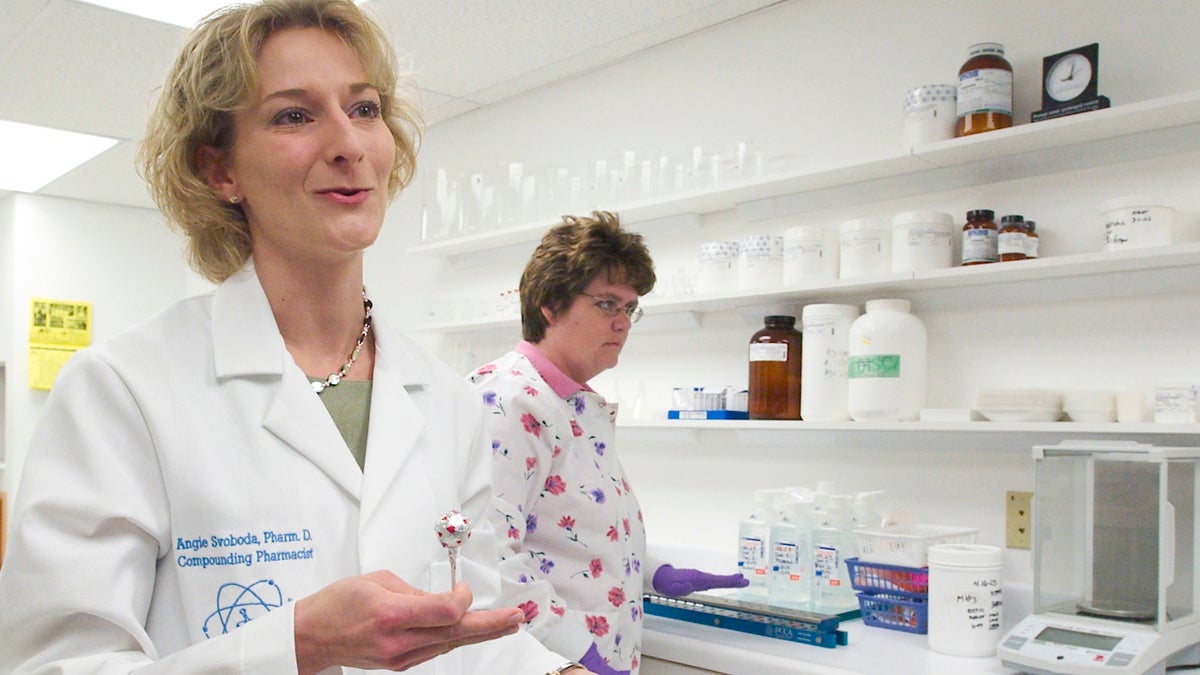Pew report urges greater state oversight of compounding pharmacies

The Pew Charitable Trusts is urging states to tighten regulation of pharmacies that compound their own medication. Compounding pharmacist Angela Svoboda holds a nicotine lollipop used by those trying to quit smoking
After a 2012 incident that sickened hundreds of people in Massachusetts, the Pew Charitable Trusts is pushing for tighter state regulation of pharmacies that mix their own drugs.
“Compounding” is a very common practice, taking two ingredients and putting them together to make an effective medicine.
“In some cases that is simply taking the standard liquid format and adding specific flavoring to it, but in most cases it’s a little more complicated than that,” said Pat Eppel, the CEO of the Pennsylvania Pharmacists Association. Often, the process must be done under sterile conditions to prevent contamination, she said.
In New Jersey, Pennsylvania and Delaware, each state’s board of pharmacy requires pharmacists to follow industry best practices. The United States Pharmacopoeia — or USP — produced the industry’s go-to guide for compounding safely.
In a new analysis, the Pew Charitable Trusts is pushing for tighter oversight at the state level.
“But we recognize that this is a time of flux and that there are a lot of states that are thinking about and rethinking their compounding policy right now,” said Elizabeth Jungman, who directs public health programs at Pew.
The Pennsylvania Board of Pharmacy, for example, has drafted new rules around compounding and is considering changes to its oversight, Eppel said.
In all three states in this region, pharmacies that do “sterile compounding” are supposed to be inspected at least once a year.
Jungman said a 2013 federal rule now governs larger-scale compounding operations called “outsourcing facilities.” Those operations process medicines for hospitals and large practices, which may want a big supply of medicines on the shelf — before an individual prescription is written.
States largely oversee smaller, traditional compounding operations in neighborhood pharmacies.
“What’s happened over time is that quality standards haven’t kept pace with large-scale compounding,” Jungman said. She said better monitoring at the state level might keep small operations from scaling up.
“Sometimes folks are getting a little bit carried away in their compounding activities and falling into the realm of manufacturing and not just compounding for a particular patient,” Eppel said.
Since 2001, about 90 deaths have been associated with compounding errors, according to the Pew report.
In New Jersey and Pennsylvania, pharmacies are allowed to compound without a specific, individual prescription.
WHYY is your source for fact-based, in-depth journalism and information. As a nonprofit organization, we rely on financial support from readers like you. Please give today.

